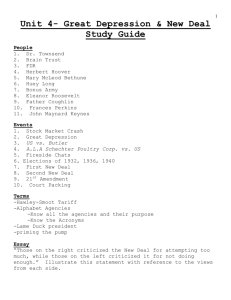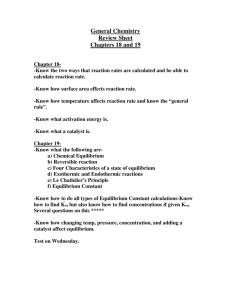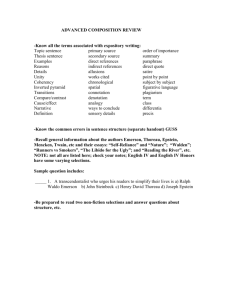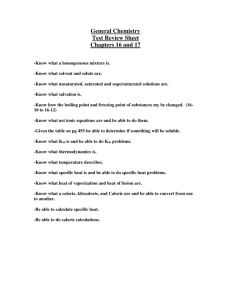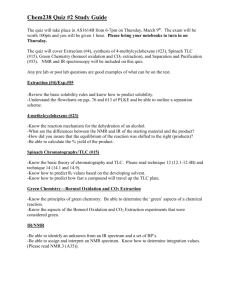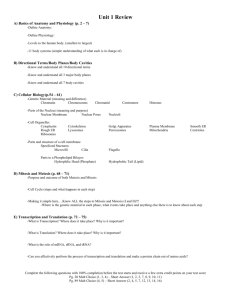Honors Chemistry Gases, Gas Laws, Liquids, and Solids STUDY
advertisement
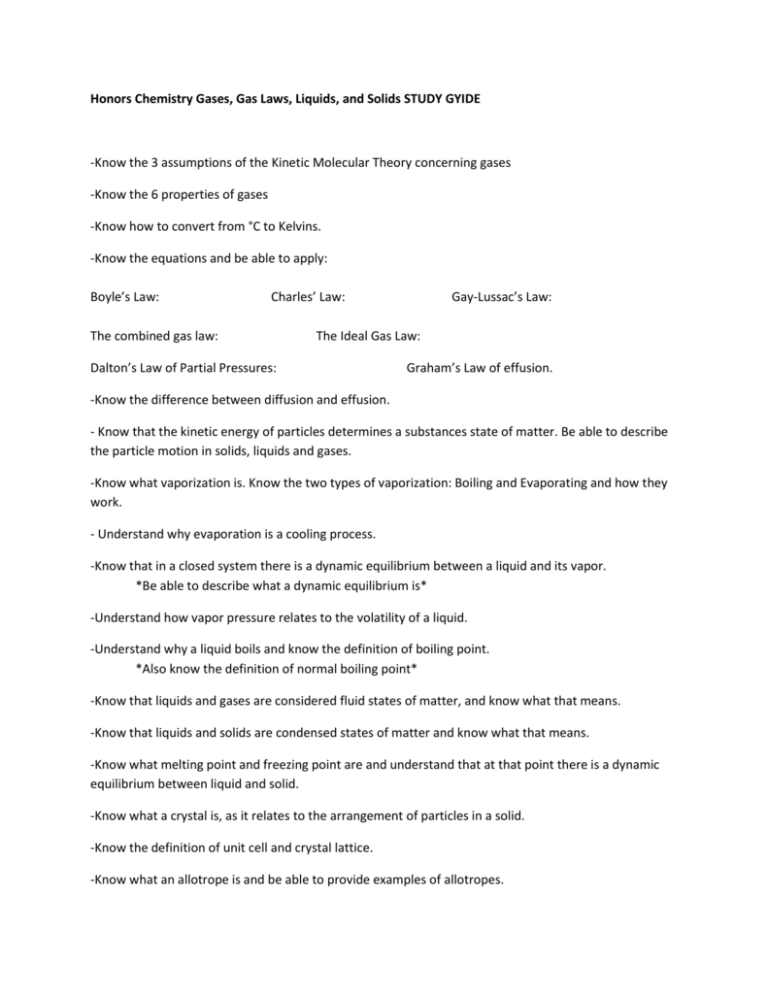
Honors Chemistry Gases, Gas Laws, Liquids, and Solids STUDY GYIDE -Know the 3 assumptions of the Kinetic Molecular Theory concerning gases -Know the 6 properties of gases -Know how to convert from °C to Kelvins. -Know the equations and be able to apply: Boyle’s Law: Charles’ Law: The combined gas law: Gay-Lussac’s Law: The Ideal Gas Law: Dalton’s Law of Partial Pressures: Graham’s Law of effusion. -Know the difference between diffusion and effusion. - Know that the kinetic energy of particles determines a substances state of matter. Be able to describe the particle motion in solids, liquids and gases. -Know what vaporization is. Know the two types of vaporization: Boiling and Evaporating and how they work. - Understand why evaporation is a cooling process. -Know that in a closed system there is a dynamic equilibrium between a liquid and its vapor. *Be able to describe what a dynamic equilibrium is* -Understand how vapor pressure relates to the volatility of a liquid. -Understand why a liquid boils and know the definition of boiling point. *Also know the definition of normal boiling point* -Know that liquids and gases are considered fluid states of matter, and know what that means. -Know that liquids and solids are condensed states of matter and know what that means. -Know what melting point and freezing point are and understand that at that point there is a dynamic equilibrium between liquid and solid. -Know what a crystal is, as it relates to the arrangement of particles in a solid. -Know the definition of unit cell and crystal lattice. -Know what an allotrope is and be able to provide examples of allotropes. -Know what an amorphous solid is. -Know the definition of glass. -Know the definition of solute and solvent -Know how the following conditions affect dissolving speed: Temperature, Agitation, Size of Solute Particle. -Know what a saturated, unsaturated, and supersaturated solution is. -Understand that in a saturated solution, a state of dynamic equilibrium exists between the solution and any undissolved solute. -Know what miscible and immiscible liquids are. -Know how temperature affects solubility (both for solid solutes and gaseous solutes). -Know how pressure affects solubility for gaseous solutes. **Know Henry’s Law and be able to use it ** -Know the definitions of: concentration, dilute solution, and concentrated solution. -Know what molarity (M) is and how to determine it (know the equation for Molarity). -Know how to calculate the concentration of dilution (M1 * V1 = M2 * V2). -Know how to calculate percent mass and percent volume of a substance. -Know what a colligative property is (the definition). -Know the three colligative properties of solutions: Vapor Pressure Lowering, Freezing Point Depression, and Boiling Point Elevation. -Understand how and particles that dissociate when dissolved are more impactful on colligative properties than those that do not.
